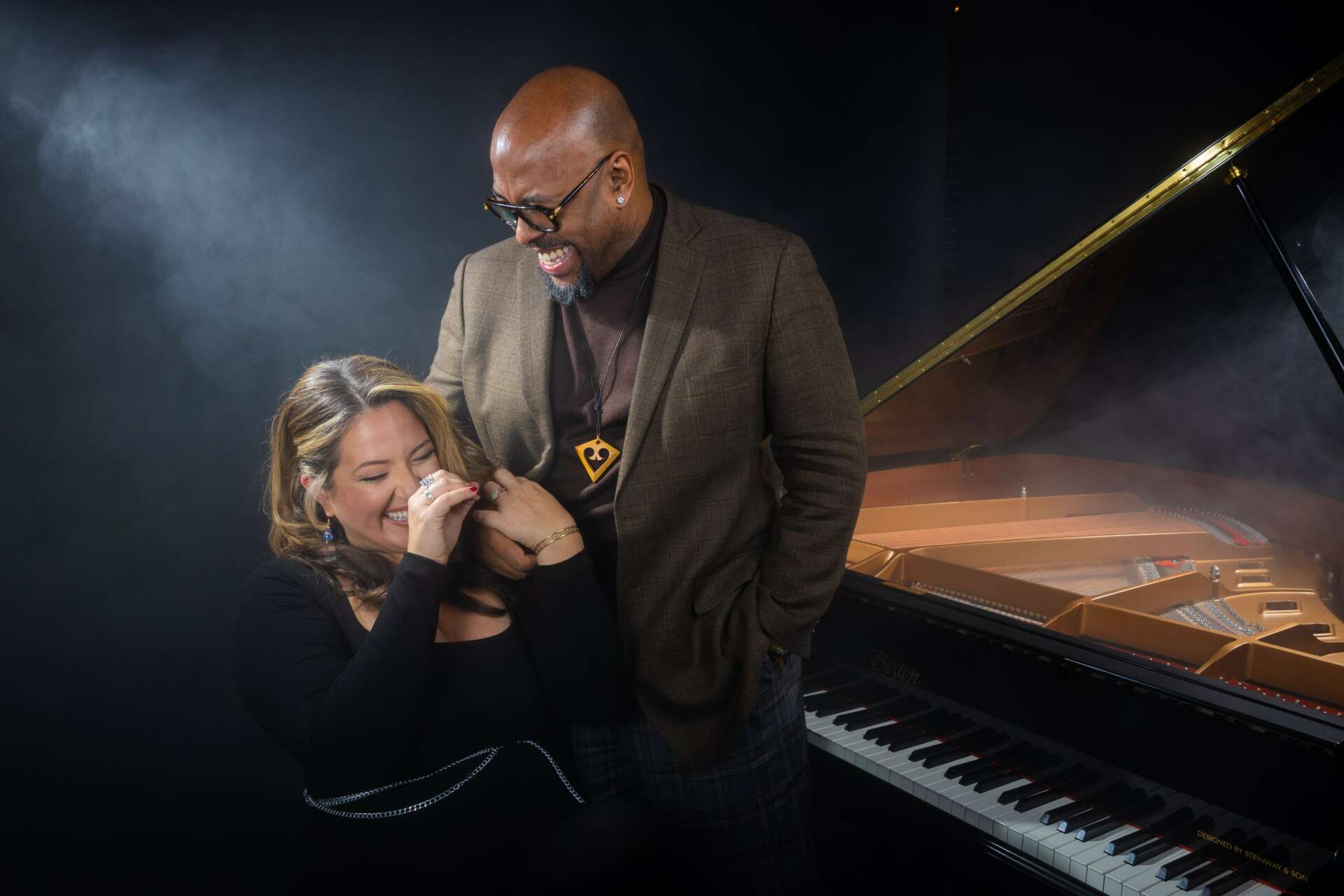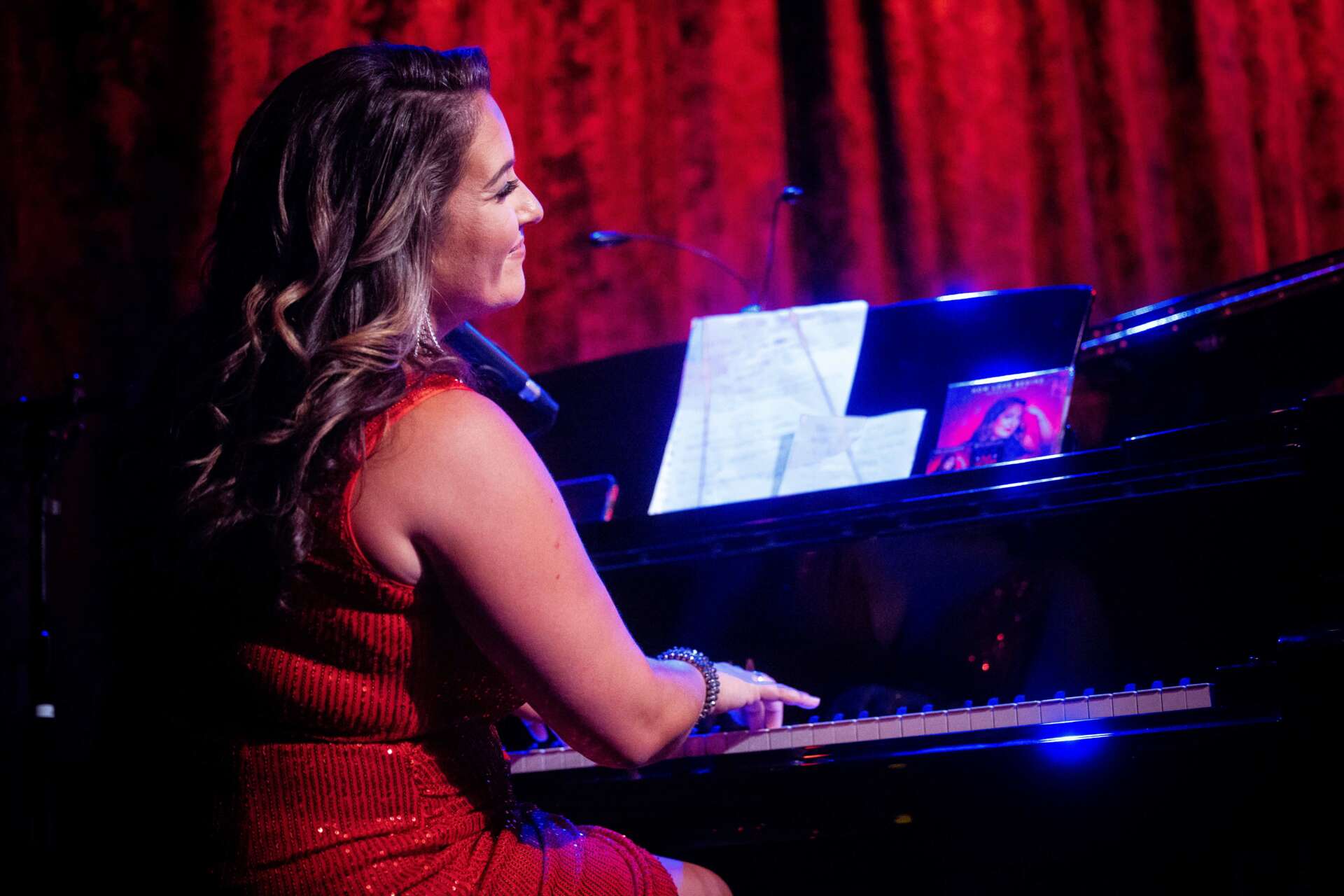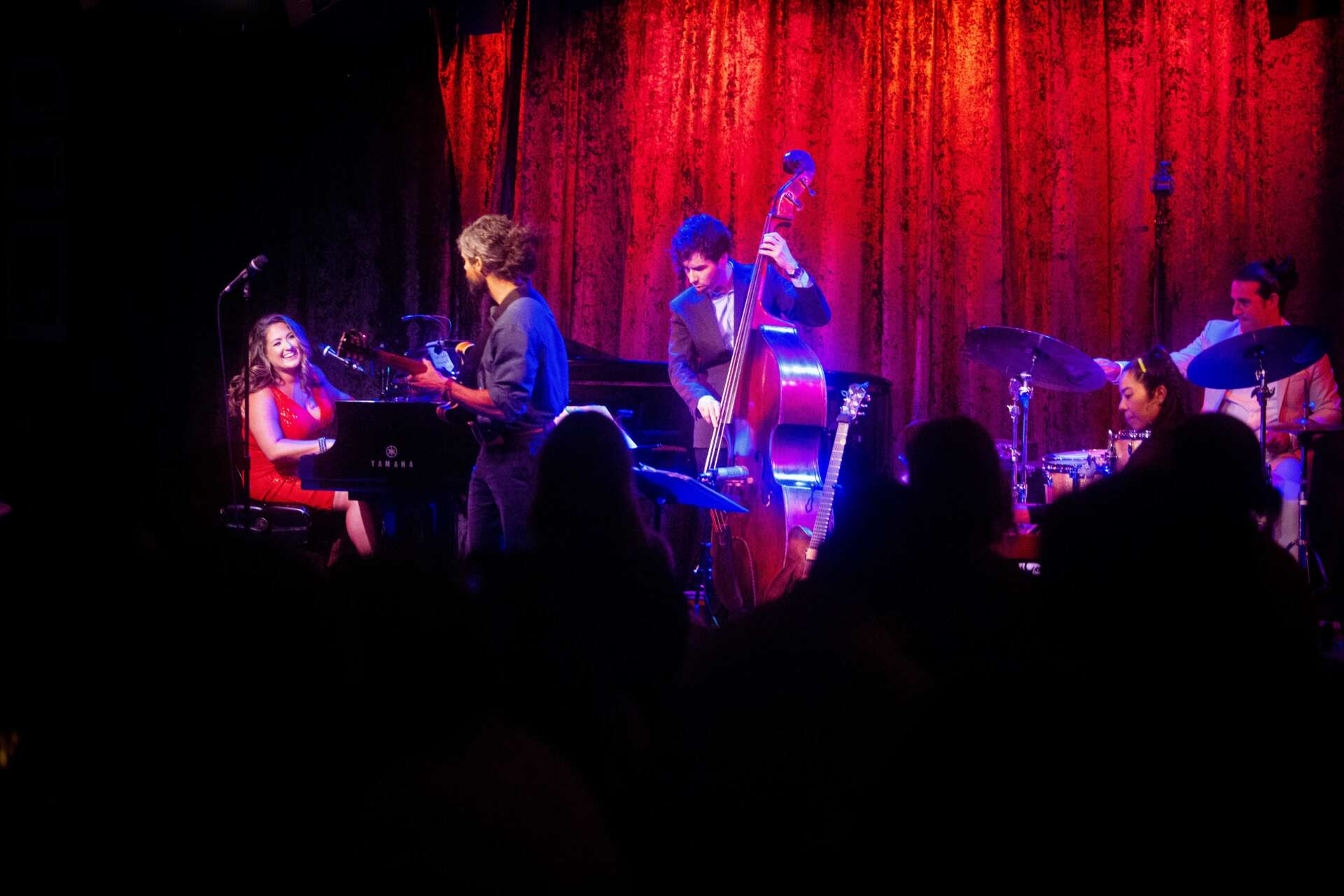We caught up with the brilliant and insightful Nicole Zuraitis a few weeks ago and have shared our conversation below.
Nicole, looking forward to hearing all of your stories today. Do you feel you or your work has ever been misunderstood or mischaracterized? If so, tell us the story and how/why it happened and if there are any interesting learnings or insights you took from the experience?
I’m a late bloomer to jazz. In fact, I was a late bloomer to even acknowledging or realizing that I had any sort of magical power as a musician at all because I wassuch an awkward kid growing up. An old soul, a gifted child, big boned, living in books and dreamland. I had a gift for sports as well as music, but my early growth spurt had me playing on the boys soccer team in middle school because I was too ‘strong’ for the girls. Let’s just say I wasn’t feeling cute when I was being made fun of my the other teams for being the only girl and my confidence didn’t grow as a powerful woman when they would heckle my appearance ( except of course when I would pummel them to the ground with a hip check. LOL. I digress… ) Fast forward to high school, where I played trombone in jazz band, sequestered myself alone writing in journals or listening to Pat Benetar/Led Zeppelin on the weekends or at sports camps and dreamed of being the ingénue in the school plays, only to be cast as the fat friend or better yet, Madame Thénardier in Les Miz (IYKYK). I had a big voice that no one knew what to do it. I felt continually misunderstood, searching for my ‘people’ and my ‘purpose’. Still, I stood in the mirror with my “big” body and “big” frizzy hair and “big voice” and sang Whitney Houston and Mariah Carey into my hairbrush at the top of my lungs every day after school before going to work the Dunkin’ Donuts late shift; always imagining a big stage, adoring fans and more importantly, acceptance, validation and acknowledgement. Music touched my soul in a deep way as a child and still does- it’s the most cathartic gift that isn’t tangible. I ended up taking my big voice and going to NYU as an opera major- but that’s another story.
I was always drawn to jazz- I played trombone, and also taught myself the piano, besides being a singer. I had a fabulous middle school band teacher who said “Play trombone, I know it’s not glamorous but you have great ears and it will help get you into college.” Another amazing band director in high school said to me, “We don’t have a singer in the jazz band here, or in the local community college. You should join that and you can guest star as a singer.” STAR- boom the words the awkward kid with zero self esteem wanted to hear. I fell in love with jazz- bought my first Ella Fitzgerald record on sale at Strawberries record store in Torrington CT and learned every single nuance, line, lick and lyric by heart. Jazz captured my love for all things music, but it wasn’t an easy road.
I started to shadow jazz legends at The Litchfield Jazz camp in exchange for scholarship- I shadowed Sheila Jordon, Kevin Mahogony, Karrin Allyson, the list goes on. I learned so much- but the main takeaway for me was there was an inherit bias against singers, and more so, an inherent bias from the entire socio structure of jazz as a whole, or as I affectionally like to refer to as “the jazz police”. Not to mention I had this big voice that, again, was not rooted in the tradition of jazz (yet) but felt very much at home there.
I don’t believe you need to go to school to study jazz, but I do believe that you need to live and breath the tradition while transcribing the greats in order to learn the language. I didn’t understand that at first, and felt completely misunderstood when I got negative feedback on my ‘jazz’ singing. That combined with the ‘singer’ bias almost had me throw in the towel, but my gut told me to stick it out (now I am an active advocate for educating, uniting and collaborating with singers!). Moving to back to New York City in 2009 made the imposter syndrome worse; I would head to jazz clubs and jam sessions and never garner the courage to sit in because the voices in my head were screaming “you’re not a jazz singer. That’s what they told you!” And forget it when it came to playing the piano- I didn’t know how to play like Herbie Hancock so the jazz snobs shot me down when I said I wanted to accompany myself on my own gigs… that voice in my head mischaracterizing me, judging my growing artist self, despite knowing deep down that I did have something to offer and something to say musically.
It’s been a long journey for me to confidently say I’m a jazz singer, and a jazz singer songwriter at that. Validation through awards, through competitions, through hard work and also through triumphs followed closely with rejection. I felt misunderstood when I was learning the language of jazz because the feedback I was getting was that I wasn’t ‘jazz’; now, I believe that it really was that I hadn’t fully developed as an artist yet. Not every success story begins in early life- I still feel I’m developing but can also finally say I’m a special artist after 15 years of learning curve . After all, I am a late bloomer.



Great, appreciate you sharing that with us. Before we ask you to share more of your insights, can you take a moment to introduce yourself and how you got to where you are today to our readers.
I believe the previous essay I wrote dives into how I got into the business, and now I’ll expand on what type of creative work I make and what sets me apart/what I’m proud of/and main things I want folks to know!
As I said before, my road to being a full time jazz singer songwriter had many detours. I began my professional artistic life thinking I was going to sing Puccini at the Metropolitan Opera House, only to realize that I needed to pay my bills and people would pay me to sing anything BESIDES opera- sing for my supper, literally! I began doing background gigs, weddings, piano lounges, you name it. I joined an international folk band, toured with a blues band, lived in India teaching music, etc. I had always dabbled in jazz but I started to really dig into the language of the craft when I was 25 after a big opportunity to sing at major jazz festival fell into my lap. Oof, in retrospect I was not at all ready for that festival BUT it did propel me to dive headfirst into a career as a jazz artist. Besides, I was constantly singing and playing piano by ear to the great songwriters of our time- Carole King, Stevie Wonder, the list goes on.
I didn’t put myself out there as a solo jazz artist until I was 30 years old and since then it’s been a wild 8 years. I have a GRAMMY nomination in arranging, 6 albums of original music under my belt, and my current album How Love Begins was coproduced by 8X GRAMMY winner and living bass legend Christian McBride. My pandemic project Virtual Piano Lounge was featured in Forbes, I’ve been in Connecticut Magazine’s 40 under 40 and won the Gold medal in the American Traditions Vocal Competition. I hold faculty positions at NYU and SUNY Purchase and tour under my own name as a leader, or with pops orchestras or esteemed colleagues like Darren Criss, Morgan James, Livingston Taylor and the Dan Pugach Nonet. I’ve sold out Dizzy’s Club at Lincoln Center, Birdland and played major jazz festivals as both a leader and sideman. I have an MBA which I pursued during COVID and have been rehabilitating, fostering and advocating for pitbulls since 2009. You can catch me once a month as a the vocalist for the Birdland Big Band and I’m currently curating a book of living jazz singer songwriters to support my mission of lifting up and supporting jazz songwriters while still honoring the tradition.



We’d love to hear the story of how you built up your social media audience?
I am not an influencer by any means, but I can attest that social media has become less of a burden to me ever since I accepted and embraced one key factor- authenticity. Being genuine and real has opened doors for me because it is a welcome break from the put-on facade of socials- the ‘highlight reel’ so to speak. I’m not interested in seeing only the unbruised fruits of your labor- I want to know how you got there and if you took those bruised apples and made an apple cake or tried to make applesauce but instead spilled it all over the floor/added salt instead of sugar/ etc.. It makes me root for you, and see the humanity behind the filters. Attempting to find the humor in everything and making satirical content has worked well for me- it has taken what is widely known as a difficult and challenging career (being a full time touring artist) and made it into a relatable and entertaining outlet for creativity. Consistently engaging in a genuine way has helped my presence grow, as well as varying content and collaborating with other artists.
What can society do to ensure an environment that’s helpful to artists and creatives?
It’s a strange time to be a touring artists after a worldwide shut down and all art being available instantly online via streaming platforms. The best way to support creatives is to buy your tickets to their shows in advance, despite having to perhaps pay a processing fee. Venues are struggling and feeling the pressure to stay open and then put that pressure on the artists when not enough tickets are sold up front- it’s not an easy headspace to live in and does not foster creativity. There are also plenty of free ways to support artists- liking, sharing, and engaging with them on social platforms. Don’t be a ghost follower- let your presence be known. Purchase merch directly from their website, or make a playlist and share it with your friends. Art is essential, but so is the money, time, talent and dedication to make it. Invest in the creatives you believe in whatever way you can.
Contact Info:
- Website: www.nicolezmusic.com
- Instagram: www.instagram.com/nicolezmusic
- Facebook: www.facebook.com/nicolezmusic
- Linkedin: https://www.linkedin.com/in/nicolezmusic/
- Twitter: www.twitter.com/nicolezmusic
- Youtube: https://www.youtube.com/channel/UCeC_BYKLzjAhfnD0Foi23vA
Image Credits
all photos by Matt Baker Photography


